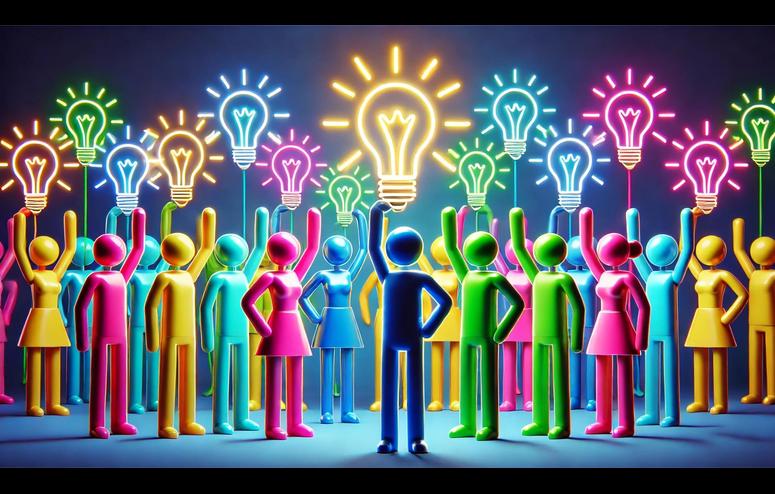The DePIN Renaissance: Empowering People - "The Defiant"

"The standard of living has risen along with the population and will continue to do so. The more people there are, the more minds we have in solving problems." - Julian Simon At the beginning of the 20th century, 90% of the world's population lived in extreme poverty, and the typical Western person had a life expectancy of 40 years, often reaching this age completely toothless. Malnutrition and poor sanitation led to the death of one in seven adults from tuberculosis, while infectious diseases such as cholera, typhoid, and smallpox were widespread. A typical adult endured physically demanding workdays of 12-16 hours, six days a week, with frequent labour accidents, particularly among child workers, who made up 20% of the workforce. Major cities fared no better; pollution was rampant, proper sewage systems were rare, and waste accumulated throughout the streets. Looking to the past makes us realise the remarkable progress made, and today, only around 10% of the World's population lives in extreme poverty, average life expectancy has doubled to a whopping 72 years, and working conditions have improved tremendously. A combination of wealth creation, technological advancements, sanitation, and social policies found their way to elevate the life standards for the majority in our modern World. However, despite the achievements, we are far from celebrating just yet. Relevant voices, such as Robert J. Gordon, are sounding the alarm because although extreme poverty has been largely eradicated, still 47% of the World's population lives in poverty levels while wealth inequality and environmental impacts are triggering political instability and destroying innovation. In other words, we may be on the verge of a declining trend in our well-being, potentially leading to a form of Neo-Feudalism. This comparison with the middle ages economic system is not an overstatement since experts emphasise that systemic wealth inequality is not only a matter of social justice but also an economic imperative that must be addressed to ensure sustainable progress. But there is hope: a historic windfall in the form of the digital economy, which currently accounts for around 20% of the world's GDP, is poised for a significant boost, creating new opportunities for wealth redistribution. As the saying goes, “Opportunity knocks but once.” The Internet, arguably the fastest-adopted technology in history, has achieved remarkable development yet remains far from saturation. It will continue to evolve and redefine itself and its associated technologies for many decades to come. At the same time, the digital economy is beginning to implement Blockchain and AI technologies, which combined are forecasted to contribute over 15 trillion USD in the next decade. From now on, business models and power relations will be shaped by decentralised systems that allow organisations and their participants to jointly set up their rights and payments while establishing their own processes and best practices. That means new and exciting opportunities for wealth creation and fair distribution are at our fingertips. Amid these opportunities, we can see how communities are beginning to support productivity through the deployment of Decentralised Physical Infrastructure Networks (DePIN). Just like in the past when participants supported DePIN’s father, Bitcoin mining, people that become a decentralised node will manage hardware and software to provide security to the network and democratise the business model. However, in this new phase, communities take one step forward and provide advanced products and services. If we consider Bitcoin mining as DePIN 0.0, in this phase of DePIN 1.0, participants actively provide essential resources such as computing power, energy, Wi-Fi, storage, IoT devices, and transportation services, among others. In any case, in return for their contributions, nodes are rewarded through innovative mechanisms such as tokens with economic value, voting power, or other desired incentives. A recent example can be found on the Energy Web Decentralised Operating System (EW-DOS). These nodes ensure network security and reliability, as well as other essential computational resources, by processing tasks in a decentralised manner. In return, a node operator is rewarded with tokens, incentivizing participation in maintaining and improving the network's functionality. This system allows people to participate, making the business model more reliable and efficient for everyone. As a consequence, the growth of the Energy Web’s worker nodes has been remarkably fast, as demonstrated by the data. Starting with 460,000 EWT lifted just two days after launch in December 2023, the network quickly surpassed 2 million EWT by March 2024 and further escalated to 7.5 million EWT by July 2024. Given this trend, further substantial growth is likely as more enterprises and individuals join the network, leveraging DePIN to provide advanced decentralised services and infrastructure. It is important to highlight that through these schemes, it is now possible to be rewarded by 3rd parties for using our own data or for training AI systems - an idea that prominent thinkers like Jaron Lanier have advocated for decades, reminding us that our data is our “human right.” Moving forward, many other self-evident issues that became distorted during the centralised era of the digital economy can be successfully addressed, helping to mitigate the threat of inequality. In the first phase of the Internet, we focused heavily on growth, often at the expense of our own well-being, prioritising the interests of big tech over those of individuals. Now, with Web 3.0 and the decentralisation it brings, a true Renaissance is emerging, offering us a genuine second chance to prioritise humanity. This movement places people at the centre as "the measure of all things," much like humanism did during the Renaissance, while burying the remnants of feudalism. The outcome depends on whom we choose to serve, ensuring we don't repeat the mistakes of the past. Irina Karagyaur co-founded BQ9, an ecosystem growth agency and is the creator of the Global Leaders Program for Energy Web X. She is a Polkadot Head Ambassador & creator and a host of The Business Case for Polkadot talks in partnership with Polkadot Blockchain Academy.
